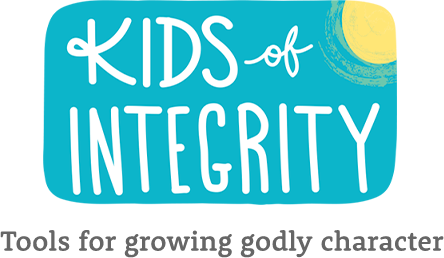Patience

Bible stories
Choose one Bible story that is most appropriate for your children. Before reading aloud, take a few minutes to review the story. If the Bible passage is too complex for your kids, paraphrase the story yourself or use the summary provided under “key concepts.”
God is good
Read Nehemiah 9.
In personal preparation read Nehemiah 9, focusing on verses 7-31. Then read appropriate sections aloud to your children. Close by reading verses 29-31.
Questions for discussion
- What good things did God do for the Israelites?
- How did they try His patience?
- What did God do?
- What good things do your parents do for you?
- Is there anything you do to continually disobey your parents and try their patience?
- Do you think this tries God’s patience, too?
Key concepts
God loved and cared for the Israelites, and we (your parents) love and care for you. When the Israelites disobeyed God, He was very patient with them, but in the end He had no choice but to discipline them. You probably expect us to do good things for you, but you can also expect that if you disobey us, we will discipline you, too. One way we may do this is by removing privileges like treats and toys.
Jesus is patient
Read 1 Timothy 1:15-16 and 2 Peter 3:9.
Questions for discussion
- How hard is it to wait for a special visitor to come and visit?
- What happens if they are late?
- What is Jesus waiting for people to do?
- How is Jesus patient with us?
Key concepts
Paul talks about how Jesus displays unlimited patience, waiting for people to confess their sins. God has a lot of patience. Every day He waits for people to tell Him they are sorry they have sinned. God is so patient that He keeps waiting. He loves us all so much that He doesn’t want anyone to miss out on having his or her sins forgiven (2 Peter 3:9).
The patient farmer
Read James 5:7-9 and Mark 4:18-19.
Questions for discussion
- How long does it take for a crop to grow?
- What would happen if the farmer tried to harvest his crop too early?
- What would happen if the farmer got tired of waiting and ploughed the field before it had a chance to rain?
- What kind of crop would God like to see growing in our lives?
- What kind of harvest does God want us to have?
- What stops our lives from being fruitful? (Mark 4:18-19)
Key concepts
Our lives are like a different kind of farm. God wants us to be patient in helping Him bring in a harvest of people for His kingdom. Every time someone asks God to forgive their sins and tells Him they want Jesus Christ as the leader of their life, it is part of the harvest for God’s kingdom. When we show God’s love to others and/or tell them that God loves them, we are “farming“ for God.
Is God unfair?
Read Habakkuk 3.
Note: If your kids like drama, they will love this story. Read with lots of expression! Prior to reading the passage, share with your children the history of Habakkuk’s time found in the summary section.
Questions for discussion
- Does life ever seem like it is unfair?
- Do you ever feel like your brother, sister or someone at school always gets away with being bad?
Key concepts
From the book of Habbakuk, we learn that Habbakuk was deeply concerned about the wickedness, strife and oppression in Judah. The thing Habbakuk found even more troubling was that it seemed God was doing nothing about it. Even though Habakkuk was not seeing the results he expected, he waited patiently and rejoiced in God. Likewise, when it seems like life is not fair and God is letting others get away with being bad, be patient and remember Habbakuk. Remember that God will eventually bring punishment on those who do wrong. It is not our job to punish wrongdoers, but God’s. It is our job to be patient.
Being patient with others
Read Psalm 37:1-8 and Colossians 3:13.
Questions for discussion
- When do you find it easy to get mad?
- What do people do that bothers you and tempts you to be impatient?
- What does the Bible say about getting mad and fretting?
- What did David do when he was frustrated with the behaviour of other people and when he felt like things weren’t fair?
- How will you remember to “put up with” that behaviour or person in the future?
- What will you do to help you remember to go to God?
Key concepts
It can get frustrating when it seems like someone else is “getting away with” causing trouble. Often, when someone does something wrong, we want to punish that person ourselves. But the Bible says that fretting and getting angry only leads to evil. When David got angry with people, he talked to God (Psalm 37:1-8).
God wants us to put up with each other and forgive whatever complaints we have about each other. He wants us to forgive as He forgave us (Colossians 3:13). A suggestion to help your children remind themselves that they are “putting up” with someone is to have your children clench their hands into fists, as though they are preparing for a boxing match. Have them say, “David was a warrior, but he went to God in prayer!” Then have them fold their hands into a praying position and talk to God about what is bothering them. They can select one of the kids talk with God prayers to pray.
- Acceptance
- Adaptability
- Attentiveness
- Christmas
- Compassion
- Confidence
- Consideration
- Contentedness
- Cooperation
- Courage
- Courtesy
- Discernment
- Easter
- Faithfulness
- Forgiveness
- Generosity
- Gentleness
- Gratitude
- Harmony
- Honesty
- Humility
- Joy
- Kindness
- Obedience
- Patience
- Perseverance
- Respect
- Responsibility
- Reverence
- Righteousness
- Self-control
- Thanksgiving

